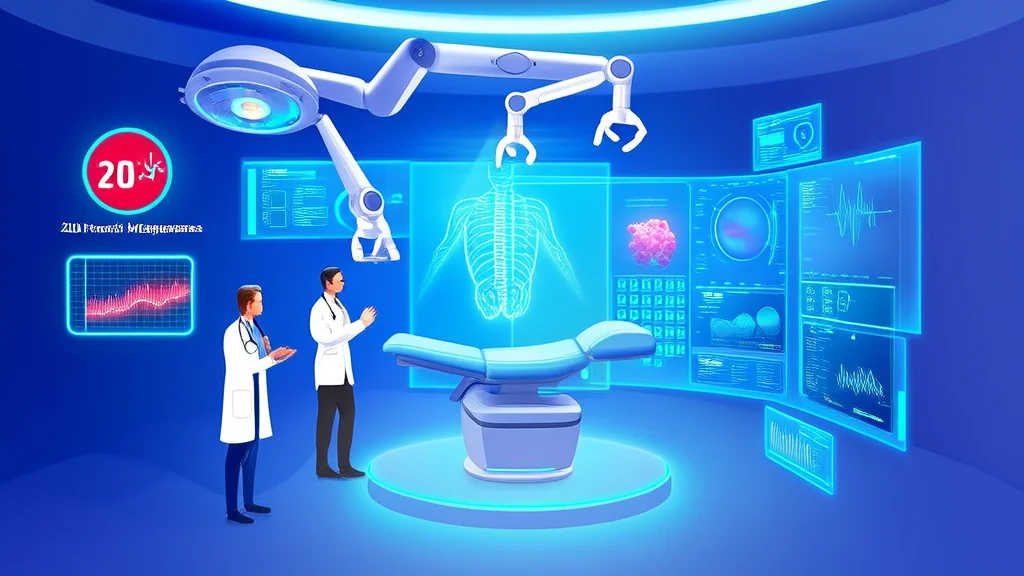AI in Action: Transforming Industries and Everyday Life
Artificial Intelligence (AI) is no longer just a buzzword; it's a transformative force that is reshaping industries, enhancing daily life, and addressing some of the world's most pressing challenges. In this blog post, we'll explore how AI is making a tangible difference in healthcare, retail, and social impact, with real-world examples and practical implications.
Revolutionizing Healthcare: AI-Driven Diagnostics and Personalized Medicine
In the healthcare industry, AI is not only improving diagnostic accuracy but also enabling more personalized treatment plans. One notable example is the work being done by PathAI, a Boston-based startup that uses AI to analyze pathology images. Their technology can detect subtle patterns and abnormalities that might be missed by the human eye, leading to earlier and more accurate cancer diagnoses.
Practical Impact: PathAI's AI-driven diagnostics have been shown to reduce misdiagnosis rates by up to 20%, which can significantly improve patient outcomes and reduce the need for invasive follow-up procedures.
Real-World Example: In a recent study, PathAI's system was used to analyze over 1,000 breast cancer tissue samples. The AI was able to identify key biomarkers with 95% accuracy, outperforming traditional methods.
Future Implications: As AI continues to evolve, we can expect even more precise and personalized medical treatments, potentially leading to better health outcomes and reduced healthcare costs.
Transforming Retail: AI-Powered Customer Experiences
The retail sector is leveraging AI to create more engaging and personalized shopping experiences. Sephora, a global beauty retailer, has integrated AI into its mobile app to provide customers with virtual makeup try-ons and personalized product recommendations. This not only enhances the shopping experience but also drives sales and customer loyalty.
Practical Impact: Sephora's AI-powered features have led to a 30% increase in online engagement and a 20% boost in conversion rates, demonstrating the tangible business benefits of AI in retail.
Real-World Example: During the 2024 holiday season, Sephora's AI-driven personalization engine helped customers find the perfect gifts, resulting in a 15% increase in average order value compared to the previous year.
Future Implications: As AI becomes more sophisticated, retailers will be able to offer even more tailored experiences, from personalized promotions to dynamic pricing, further enhancing the customer journey.
Social Impact: AI in Environmental Conservation
AI is also playing a crucial role in addressing environmental challenges. Rainforest Connection (RFCx) is a non-profit organization that uses AI to monitor and protect rainforests. By deploying solar-powered acoustic sensors, RFCx can detect illegal logging and poaching activities in real-time, allowing for rapid response and intervention.
Practical Impact: Since its launch, RFCx has successfully prevented over 100,000 hectares of rainforest from being illegally logged, contributing to the preservation of biodiversity and the fight against climate change.
Real-World Example: In the Amazon rainforest, RFCx's AI system detected and alerted authorities to an illegal logging operation, leading to the arrest of the perpetrators and the protection of a critical habitat for endangered species.
Future Implications: As AI technologies advance, they will become even more effective in monitoring and protecting natural resources, helping to safeguard our planet for future generations.
These examples illustrate how AI is not just a futuristic concept but a powerful tool that is already making a significant impact in various sectors. From improving healthcare outcomes to enhancing retail experiences and protecting the environment, AI is transforming the way we live and work. As these technologies continue to evolve, the potential for positive change is limitless.
